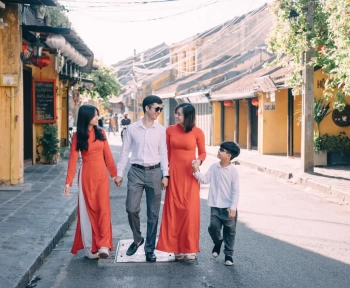Are you planning to travel to the US for business purposes? If so, you may need a B1 visa. Navigating the B1 visa process can be overwhelming, especially if it’s your first time. In this post, we will provide you with an overview of the B1 visa process, including the eligibility criteria and essential documents required for application. Additionally, we will guide you through the interview preparation process to ensure that you are well-equipped and confident during your visa interview.
Sometimes, despite all efforts and preparations, B1 visa applications get denied. We will explain why this happens and what steps you can take in case of such denials. Lastly, we have also answered some common questions that people have about applying for a B1 visa based on nationality. Read on to make sure that your trip is stress-free and successful!
Overview of B1 Visa Process
To navigate the process of obtaining a B1 visa for travel to the United States, it is important to understand both the purpose of your trip and the eligibility criteria. Gathering all necessary documents such as a letter from your employer and evidence of financial support are critical steps in securing your visa. Scheduling an interview with the embassy or consulate in your home country is also required. Be sure to practice common interview questions beforehand to feel prepared. Remember that being honest is always the best policy. Afterward, follow up and wait for a decision on your application.
Eligibility for B1 Visa
Foreign national applicants applying for a temporary stay through a B-1 visa in the United States must establish a legitimate purpose to conduct business activities such as attending meetings, conferences and negotiating with American business associates. They must show compelling evidence of their strong ties to their home country and have no intention of becoming an immigrant permanently. The application process includes submitting various supporting documents and appearing for an interview at the relevant US embassy/consulate.
Documents Required for B1 Visa Application
As a B1 visa applicant traveling to the United States for business purposes, it is essential to have supporting documents such as a valid passport (with at least six months’ validity beyond your period of stay), a completed DS-160 form, and payment of the non-refundable visa application fee. Additional documents may include proof of ties to your home country, evidence of financial support during your trip, and statements of income or remuneration. These should be reviewed carefully before submission to ensure their accuracy and completeness.
B1 Visa Application Process
When applying for a B1 visa to visit the United States for business purposes, one must complete an online DS-160 form and arrange an interview at the embassy or consulate. Supporting documentation such as financial records, evidence of strong ties to one’s home country, and an invitation letter from a U.S. business partner are required. During the interview process with the consular officer, applicants may face queries regarding their intended purpose of travel and connection with their native land. Adequate preparation is necessary for ensuring a smooth B1 visa application process.
Interview Preparation for B1 Visa
Preparing for your B-1 visa interview is crucial to ensure a successful outcome. To ace the interview, you must be able to explain the purpose of your trip in detail while displaying confidence and familiarity with your itinerary and ties to your home country. Dress appropriately and arrive early at the embassy or consulate with all necessary documentation such as a valid passport and supporting documents. Practice potential interview questions with a family member or friend beforehand for added confidence.
Understanding B1 Visa Denials
If your B-1 visa application is denied, there are steps you can take such as seeking legal assistance or reapplying with additional documentation. To avoid common mistakes in the B-1 visa application process and increase your chances of approval, provide complete information and clearly demonstrate the purpose of your trip. It’s also important to understand common reasons for B-1 visa denials such as insufficient supporting documentation or a lack of ties to your home country. By taking these steps and being well-prepared with all necessary supporting documents at the time of your embassy interview, you can improve the odds of getting approval for your temporary stay in the United States.
Addressing B1 Visa Denials
To effectively address a B1 visa denial, it’s important to understand why it happened and take appropriate action. Denials are often due to insufficient evidence of intended activities in the US or lack of ties to one’s home country. Providing additional documentation, demonstrating stronger ties to your home country, or seeking legal assistance are some ways to address these issues. An experienced immigration attorney can improve your chances of success with B1 visa applications.
Applying for B1 Visa by Nationality
When applying for a visitor visa by nationality in the US, it’s important to research the specific requirements for your country before starting the application process. Depending on your nationality and country of origin, the application process may differ. Generally, in order to apply, you’ll need to demonstrate the purpose of your trip with documents like a letter from your employer or invitations from US-based business associates. You should also be ready to show proof of ties to your home country through documentation like property ownership or family relationships.
Conclusion
Navigating the B1 Visa process can seem daunting, but it doesn’t have to be. The first step is understanding the eligibility criteria and gathering all necessary documents required for the application process. Once you submit your application, prepare well for the interview stage to increase your chances of approval. However, if you receive a B1 Visa denial, don’t panic. Our blog covers addressing common reasons for denials and how to move forward. Additionally, we’ve compiled answers to frequently asked questions about applying for a B1 Visa based on nationality. For more information on navigating the B1 visa process, check out our comprehensive guide now.



